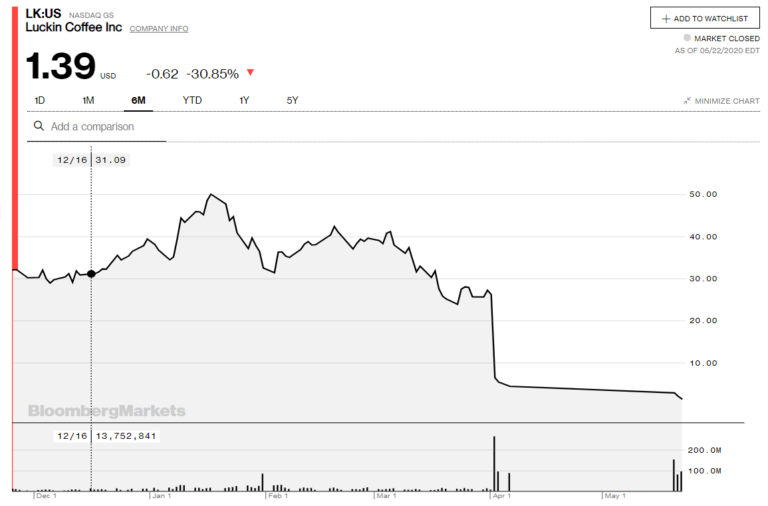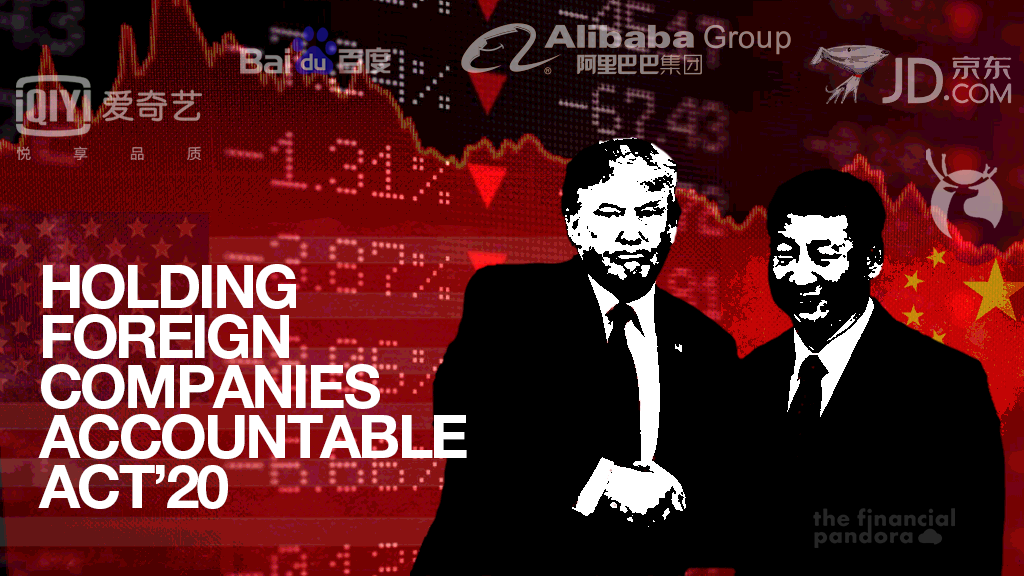The US-China trade tensions were the talk of the town in 2019. In January, phase 1 of the trade deal was signed. This was a positive move for the world economy but was short-lived, as soon after that, the pandemic was announced. And since then, coronavirus fears have dominated the headlines left, right and centre. With escalating fears of a global recession/depression and unprecedented job losses everywhere in the world.
According to the worldometers.info, the US on the 24th May had 1,666,828 cases with 98,683 deaths. In this dismay, the US president addressed the coronavirus as the “Chinese Virus” prompting the Chinese to retaliate.
On May 19, Nasdaq announced that it would tighten requirements for companies seeking to go public on the exchange. This tighten regulation will enforce the companies to raise at least $25 million or a quarter of the companies value in an IPO. The exchange has also mandated that companies hire an advisory firm to meet the regulatory levels of transparency and accountability required by US public companies.
Later that week, US Senate announced a bill that could effectively de-list companies if they don’t comply with GAAP accounting standards. This move will set to affect all foreign companies but is majorly targeted towards China.
This legislation calls for companies to be barred from listing securities on the US exchanges if they don’t comply with US accounting audits for the past 3 years and companies will have to disclose whether they’re owned or controlled by foreign governments.
These tough and targeted restrictions have come after the Luckin coffee scandal. Where the startup fabricated about 2.2bn yuan ($310m) worth of sales in April 2019. This equates to 40% of the estimated annual sales.
Luckin Coffee is a local rival to Starbucks. It has been one of China’s few successful IPO’s in 2019. Since 2016, 59 Chinese IPOs have debuted on the US exchanges that have a value smaller than $25 million. And the performance has been worrisome, losing an average 67% of value since the IPO.

On April 1st, shares of Luckin coffee were trading at $26, after the unravelling of the scandal the shares fell merely to $6.40. Nasdaq halted the trading of the stock on April 7. On Wednesday 20th May, US-listed shares of Alibaba, Internet streaming company iQiyi, search engine company Baidu and online retailer JD.com. All fell after the US Senate passed the bill.
US Senator Chris Van Hollen added to the matter by saying “For too long, Chinese companies have disregarded US reporting standards, misleading our investors.” The bill in senate passed by unanimous consent and will be taken to the Democratic-controlled House of Representatives.
Mark Cuban in an interview with Yahoo Finance last year, suggested the delisting of Chinses companies. As these Chinese companies have strong leverage when they raise money in the US exchanges. Whereas US companies can’t do the same in China.
As the US elections come close, Trump has escalated attacks on China, with the latest attack on Huawei. The administration has decided to cut Huawei’s supply of key computer chips. Along with the tension in Hong Kong. This move by the Senate has only given Trump a new weapon in his arsenal. This war will be defined by key battles not just in politics and trade but will be intensified when things like IP and geopolitical tensions are factored in.
However, it’s yet to be seen how the situation unravels. With the US reporting hundred thousand deaths, how will Trump manage to fight off China and the pandemic? And how will China react?


Good and very nice write up Manik
Excellent inputs looking into future